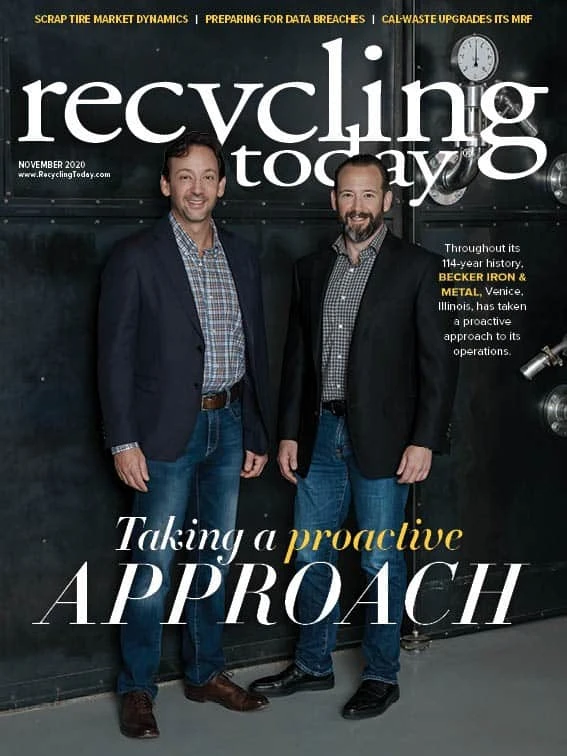Trucking availability has been reduced, while rates have been increasing, sources who work at plastics reprocessing companies say. The situation is affecting reprocessors’ ability to secure plastic scrap at the same time other factors are contributing to reduced availability for certain grades of plastic.
A reprocessor of polyethylene (PE) film and polypropylene (PP), also known as No. 5, says it has been challenging to find new sources of mixed plastics bales. “There is less supply than we’d like,” she says.
When it comes to PP bales, she says those that are available tend to be of the tubs-and-lids variety and not a true No. 5 bale. “There is a limited number of MRFs (material recovery facilities) actually making that.”
The reprocessor says MRFs can take two approaches to recover PP: producing mixed plastics bales or making a true PP bale. “There are multiple ways to approach the issue; way too much material is going to landfill. You don’t have to have an optical sorter to make a No. 5 bale.”
“Freight rates have more than doubled. Some reprocessors are not seeking to acquire material unless they can get it at competitive numbers.” – a toll reprocessor based in the Midwest
Regardless of the approach MRFs take, she says her company is interested in buying the bales.
Securing sufficient Grade B film has not been an issue for her company. “Quite a lot of it was being exported,” she adds. “More and more, we are hearing that export of Grade B film is being denied.”
The reprocessor says virgin PE pricing has been trending downward over the last five years because of overcapacity. “Overall, that is still the trend, but over the last month or more, virgin PE has really picked up a few notches in pricing,” she says in mid-October, citing hurricane activity along the Gulf Coast and the slow ramp-up of activity in the petrochemical sector after pandemic-related shutdowns as contributing factors that have reduced virgin PE supply.
The reprocessor says the situation is “opening old doors” to companies that only use recycled PE when it is less expensive than virgin. “They are not necessarily companies looking for PCR (postconsumer resin).”
Also increasing are freight rates, which the PE and PP reprocessor describes as “insane.”

A toll reprocessor based in the Midwest says the increase in freight rates has been difficult for markets to absorb. “Freight rates have more than doubled,” he says. As a result, “Some reprocessors are not seeking to acquire material unless they can get it at competitive numbers,” he adds.
The Midwest source says seasonal issues and the driver shortage are contributing to the increase in freight rates. The lack of timely trucking also affects whether some reprocessors can secure business.
He says his company’s toll processing arrangements are helping to insulate the business somewhat as is the diversity of polymers his company processes.
A reprocessor of high-density polyethylene (HDPE) who is based in the Southeast says transportation has been tighter, with price inflation and dependability issues as results.
He says natural HDPE scrap also is tight, while market dynamics for mixed color bales have changed over the last month. “We are seeing rising price trends on both sides,” he says, adding that his company has been able to secure what it needs, though at higher prices.

Explore the November 2020 Issue
Check out more from this issue and find your next story to read.
Latest from Recycling Today
- Orion ramping up Rocky Mountain Steel rail line
- Proposed bill would provide ‘regulatory clarity’ for chemical recycling
- Alberta Ag-Plastic pilot program continues, expands with renewed funding
- ReMA urges open intra-North American scrap trade
- Axium awarded by regional organization
- Update: China to introduce steel export quotas
- Thyssenkrupp idles capacity in Europe
- Phoenix Technologies closes Ohio rPET facility





